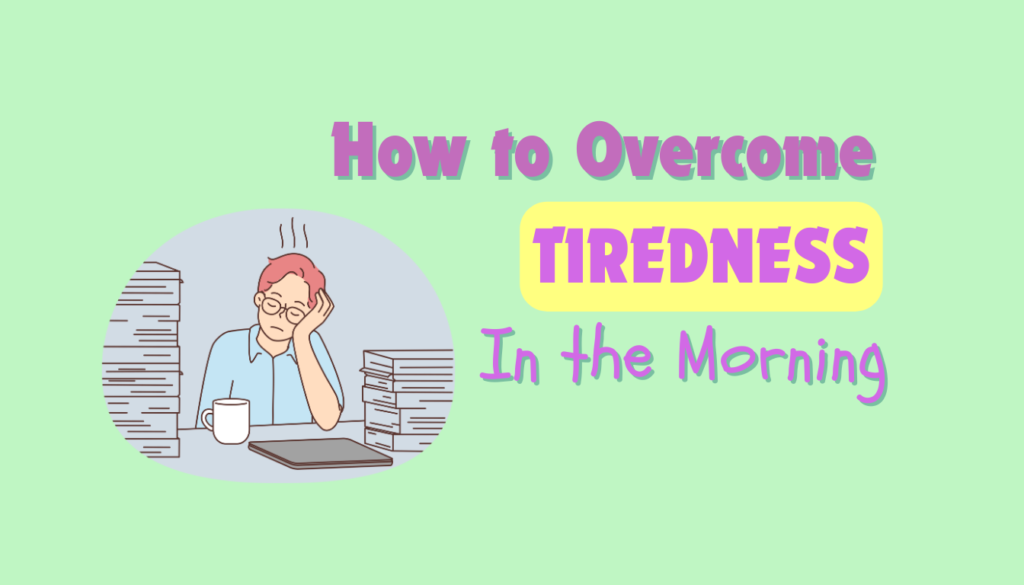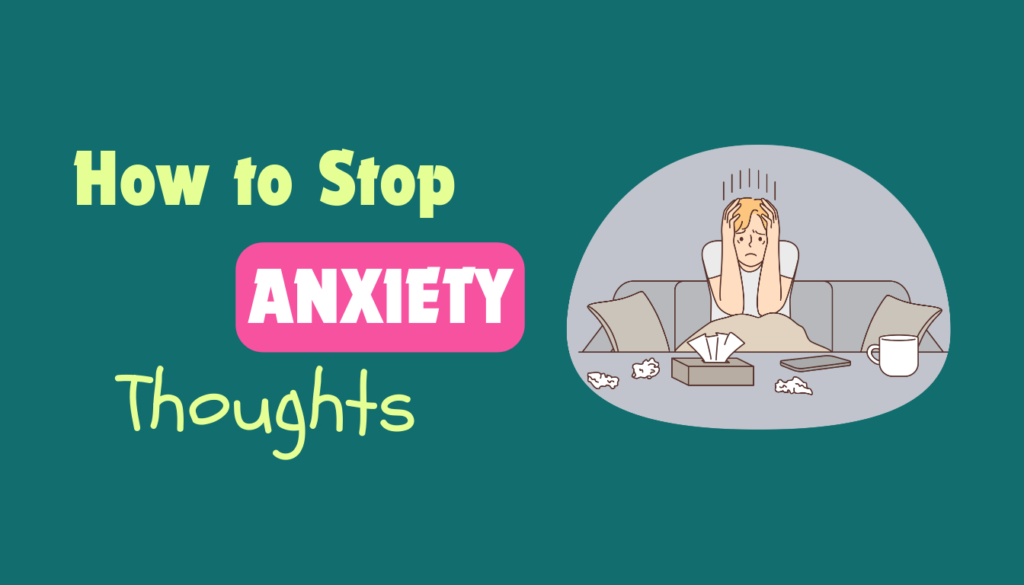Do you often feel tired and sluggish in the morning?
You’re not alone. Many people worldwide deal with this issue. But, there’s good news. There are easy, proven ways to get past morning tiredness.
Stress, lack of sleep, a bad diet, and other lifestyle choices often lead to feeling worn out.1 Luckily, we can boost our energy and alertness by making a few changes.
We’ll share 8 tips to help you beat morning fatigue. These tips will help you wake up feeling ready to take on the day.
Understand the Causes of Morning Fatigue
Knowing what makes you feel tired in the morning is the first step. Health issues like diabetes and heart disease could be to blame.
Other causes include arthritis, anemia, thyroid issues, and sleep apnea.2 Some medicines, such as those for high blood pressure, can make you feel tired too.3
Also, being dehydrated, not sleeping enough, or having weight problems may lower your energy levels.
How you live also affects how tired you feel in the morning.
Bad sleep habits like not keeping a regular sleep schedule, taking long naps, or looking at screens before bed can make you tired.
A bed that’s not comfy, and having foods that are heavy, greasy, or spicy, along with coffee and alcohol, right before you sleep can also make you sleepy.2
Health issues, medicines, and the way you live can all make you feel tired when you wake up.
By figuring out what’s causing your morning fatigue, you can find ways to feel more awake and energized.
How to Overcome Tiredness in the Morning
Feeling tired in the morning can be tough. But, fighting it off involves many steps.
First, it’s good to eat well and exercise4. This helps a lot.
Also, losing extra weight and getting better sleep makes a big difference1. Less stress, and fewer drinks with caffeine and alcohol, are other key factors1.
More advice includes not hitting the snooze button and drinking water first thing4. Doing a bit of yoga or light exercise helps, as does picking a smart breakfast41.
To fight tiredness, it’s crucial to drink enough water and sleep well12. Plus, moving your body regularly keeps energy levels high4.
Combining these methods tackles morning tiredness, letting us start the day strong.
- Establish a consistent sleep-wake cycle, even on weekends, to help regulate the body’s internal biological clock4.
- Incorporate stress-reducing practices, such as morning meditation or mindfulness exercises, to create a calmer start to the day1.
- Fuel your body with a nutritious breakfast that includes a balance of protein, complex carbohydrates, and healthy fats to provide sustained energy4.
- Engage in regular exercise, such as a brisk walk, yoga, or light cardio, to boost energy levels and mental clarity41.
- Stay hydrated throughout the day by drinking water, especially after exercise, to combat fatigue1.
By knowing how to fight morning tiredness, we free up our body’s natural energy. This way, we can make the most of our day.
1. Establish a Consistent Sleep Routine
Keeping a steady sleep pattern helps you feel lively every morning.4 Going to bed and waking up at the same times daily, even on days off, is key. It sets your body clock right.5
Studies show a set bedtime means better sleep.5
Good habits around sleep make waking up easier.5 This means no screens before bed, making your sleep space cozy, and skipping naps.5
People who live past 100 often say they sleep well. They prove how important it is to keep to a sleep schedule.
Our circadian rhythms control when we sleep or stay awake.5 Light affects these rhythms, matching them to night and day.5 So, keeping fixed sleep times is vital for good sleep.5
It’s best to wake up early and go to bed early too, to match nature’s cycle.5 Getting seven hours sleep a night is ideal for both your mind and body.5
Follow these tips for quality sleep: watch your light exposure, cut down on evening screens, get moving, stick to a night routine, avoid long naps, and watch your caffeine and-alcohol use.5
2. Fuel Your Body with the Right Foods
Fueling your body with the right breakfast foods changes the game. It fights off morning tiredness. Starting your day with a nourishing meal is key.6
Avoid sugary stuff like sweetened coffee, pastries, or cereals. These can make your blood sugar go up and then crash.
Instead, go for a mix of fatigue-fighting foods. Lean proteins, whole grains, nuts, and some fruits with less sugar will keep you powered up in the morning.7
Choose whole grains like oatmeal, quinoa, and brown rice. They digest slowly and hold your blood sugar steady. This helps avoid the energy dips after eating sugars or refined carbs.
Include nutrient-rich superfoods in your breakfast. Avocados, watermelon, almonds, kale, and more are full of good things.
They are strong in fiber, vitamins, and antioxidants. These boost your energy and fight fatigue.6
Eggs are a great choice, too. They offer top-notch protein and good fats. This keeps you full and ready for the morning.7
Launching your day with the right breakfast foods that boost energy helps. It lowers sugar, wakes you up, and gets your diet balanced.
This way, morning tiredness doesn’t stand a chance. Welcome a refreshed start to your day.
3. Exercise for an Energy Boost
Adding morning exercise to your daily routine can fight tiredness. It gives you more vitality throughout the day.
Research shows that it boosts your vigor and makes life better. It does this by improving your heart, lung, and muscle functions.1
Start your day with a bang by doing some quick cardio activities in the morning. This could be high knees or jumping jacks.
Such activities “boot up” your body and offer a quick energy boost.8 You can also try including yoga and mind-body practices in your mornings.
This approach was proven to not only make you feel clear-minded but also boost your energy and confidence after just six weeks.
Finding your favorite exercise and sticking with it in the morning works wonders. It keeps you from feeling tired and makes you start your day full of life and excitement.
4. Manage Stress and Mental Health
It’s key to deal with stress and mental health to beat morning tiredness. Feeling down about work or home stress may be zapping our energy.
Doing something to tackle these issues can make a big difference.4
To make mornings less crazy, try preparing the night before. This might mean making lunches in advance or doing morning meditations. A calm morning can set the tone for the whole day.9
If you feel tired often, it could be due to conditions like depression. Keeping track of your mood or getting help from a pro might be needed.
This can help deal with the real mental health issues making you feel tired.
Working on our mental well-being gives us more power and drive for the day.
Relaxing activities like meditation, breathing exercises, or soft yoga can cut stress. This helps us feel more balanced and full of energy in the morning.4
Plus, getting help for depression or anxiety is important if you’re always tired in the morning.
How we feel mentally and emotionally links to our energy level. Acting early to combat stress and care for our mental health is vital. It helps us fight off morning exhaustion and start the day strong.4 9
5. Stay Hydrated Throughout the Day
Keeping hydrated is key to fighting morning grogginess and keeping your energy up.
One study shows that not drinking enough water can lead to feeling tired. This affects how well you perform tasks, stay alert, and concentrate.1
Another study suggests starting the day with a glass of water to wake up. It also says monitoring the color of your urine can tell you if you’re drinking enough.6
Yet another source points out that even a little bit of dehydration can make you feel exhausted. It’s vital to drink plenty of water all day to keep your energy high.10
To tackle dehydration’s impact, try to drink the right amount of water every day. The recommended amount for most adults is two liters, as per the third source.10
Also, eating water-rich foods, like watermelon, can boost your hydration.6 You should also cut back on drinks that make you pee more, like coffee and alcohol.
These drinks can lower your body’s water levels, affecting how hydrated you are.10
Making hydration a focus all day helps beat the signs of dehydration. It not only boosts how well you move and think but also aids in getting better sleep, says the third source.10
Good practices include always having a water bottle near you, setting reminders to drink, and eating foods that keep you hydrated. This way, you’ll feel energized and alert from dawn to dusk.
6. Optimize Your Sleep Environment
Making your sleep space cozy and just right is key for feeling energized in the morning.
Little things like the room’s temperature and how much light it gets are super important for good rest. They make a big difference in how well we sleep.11
Experts say to aim for about 65°F (18.3°C) in your bedroom. This is what most people find to be the best.
Also, letting the sun in when you wake up not only makes you happier but also more alert.11 12
It’s smart to cut down on blue light, too. Blue light messes with our sleep hormones and natural body clocks.
So, shut off screens like phones and tablets at least an hour before you plan to sleep. It helps set the right snooze stage.11
With the right temperature, sufficient light, and less blue light, we set the scene for great sleep. Doing these things helps us not only sleep better but also feel ready to tackle the day in the morning.11 12
7. Address Potential Sleep Disorders
Feeling tired every morning might mean you have a sleep problem like anxiety or depression.2 It’s important to talk to a doctor to find out why you’re always tired.2
Sometimes, being tired is linked to health issues or the medicine you take.4
Sleep apnea, where your breath stops while you sleep, can make you tired even if you sleep eight hours.13
Feeling an urge to move your legs, known as restless legs syndrome, can also tire you out.2 Grinding your teeth at night, called bruxism, can cause sleep problems and other issues.2
Health problems like anemia or thyroid issues can also cause fatigue.13 Depression and anxiety can make you feel tired, too.2
By dealing with sleep and health problems, you can have more energy in the morning.
8. Track Your Sleep Quality and Quantity
It’s key to watch your sleep and how well you rest to banish morning grogginess.
Experts suggest adults sleep seven to nine hours each night.14 Sticking to a regular sleep schedule, even on free days, can sync your body clock. This makes mornings feel less sluggish.14
You can get a grip on your sleeping habits by using gadgets and tips to record your shut-eye details. Try a sleep tracker app, a smart watch, or jot it down in a diary.
Tracking your sleep helps spot where you can do better. It lets you tweak your routine for more pep in the AM.
Keep this in mind: turning sleep info into action can really amp up your morning vigour. You might need to change when you go to bed, fix your bedroom setup, or deal with sleep issues.
Making smart choices using your sleeping data can lead to waking up more alert and pumped to face what’s ahead.
Conclusion
We’ve looked at many ways to fight morning tiredness. These include setting a regular sleep schedule15 and eating the right foods. Also, being active and handling stress and mental health are important.
To beat morning fatigue, it’s key to fix its main causes. Late nights, too much caffeine or alcohol, and bad eating habits can make you tired.
By using a mix of these tips, you can start each day feeling renewed and full of energy.
For more energy and less tired mornings, take a balanced approach. Focus on your sleep, diet, physical activity, and health. This approach helps you stay energetic all day long.16
Follow the advice in this article to boost your mornings. Manage your sleep, food, exercise, and mental well-being. This way, you can greet each day with focus and the motivation to meet your aims.
Source Links
- https://www.nhs.uk/live-well/sleep-and-tiredness/self-help-tips-to-fight-fatigue/
- https://www.medicalnewstoday.com/articles/waking-up-tired
- https://www.henryford.com/blog/2021/10/why-am-i-so-tired-in-the-morning
- https://www.healthline.com/health/morning-fatigue-remedies
- https://www.sleepfoundation.org/sleep-hygiene/how-to-reset-your-sleep-routine
- https://www.healthline.com/health/food-nutrition/morning-fatigue
- https://www.medicalnewstoday.com/articles/foods-that-beat-fatigue
- https://www.webmd.com/balance/boost-energy
- https://www.webmd.com/balance/features/get-energy-back
- https://www.sleepfoundation.org/nutrition/hydration-and-sleep
- https://www.healthline.com/nutrition/17-tips-to-sleep-better
- https://www.sleepfoundation.org/sleep-hygiene/healthy-sleep-tips
- https://www.webmd.com/sleep-disorders/ss/slideshow-fatigue-causes-and-remedies
- https://www.cnn.com/2022/08/10/health/waking-up-tired-reasons-solutions-wellness/index.html
- https://www.medicalnewstoday.com/articles/8877
- https://www.healthdirect.gov.au/fatigue





